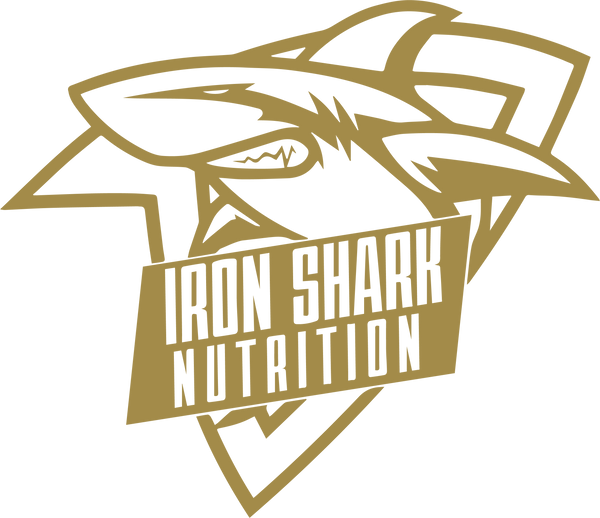What are we talking about ?
Sleep is defined as a lowering of our state of consciousness, located between two phases of wakefulness. Close to the state of unconsciousness, due to the decrease in muscle tone and a loss of vigilance, it nevertheless remains different through the conservation of sensory perception. Indeed, we retain some of our reflexes, as well as the ability to react to touch or speech.
How does sleep work?
Sleep normally consists of 4 to 6 successive cycles of 90 minutes. These cycles are themselves divided into 3 different phases:
-
 Slow slow sleep: eyes close and breathing calms down. You can feel this sensation of falling, and muscle spasms. As its name suggests, this phase is light and it doesn't take much to wake us up.
Slow slow sleep: eyes close and breathing calms down. You can feel this sensation of falling, and muscle spasms. As its name suggests, this phase is light and it doesn't take much to wake us up.
- Deep slow sleep: it becomes difficult to wake up, everything is at rest. The body no longer moves and a regular rhythm sets in for the breathing and the heart. This is the phase where we recover the most.
- REM sleep: it is a mixture of signs of wakefulness and deep sleep, hence the name paradoxical. Heartbeat and breathing respond to our dreams. This is the dream phase, where we do the most.
Are there factors influencing sleep?
Having a quality and perfectly regulated sleep is very rare these days. It is estimated that the French sleep about 1h30 less than 50 years ago, and that 17% of them suffer from sleep disorders.
Indeed, the quantity and quality of sleep can depend on many factors:
- The environment: our environment is full of aggressions such as pollution and noise. But at present, the most aggressive against our sleep remains exposure to screens (television, tablet, computer, smartphone, etc.). These devices emit blue light which stimulates the retina as in broad daylight and cuts the secretion of melatonin , the sleep hormone.
- Sex: the female hormonal cycle and especially during menstruation or menopause can affect the onset of insomnia.
- Lifestyle: alcohol, drugs, cigarettes, poor diet, lack of physical activity, all these factors affect the quality of sleep.
- The amount of sleep: variable according to age, it is nevertheless necessary to have a minimum of hours of sleep per night. For example, count between 7 and 9 a.m. for an individual aged 18 to 65.
- Temperature: a room with a temperature lower than 16°C, or higher than 18°C will alter the quality of sleep by increasing the number of waking phases. There will therefore be a shortening of all the other phases of the sleep cycle.
- The life cycle: generally, the older we get, the more difficult it is to sleep, because deep sleep decreases and the periods of wakefulness between each cycle increase with age.
What are the consequences of a lack of sleep?
These consequences can be separated into two categories. Short-term effects such as, for example, reduced reflexes, fatigue, reduced concentration, irritability, memory problems, etc.
But apart from these short-term effects linked to the lack of sleep that we all know, it is the long-term consequences that we must focus on:
- Weight gain: Lack of sleep stimulates appetite hormones (leptin, ghrelin, orexin). If we add to this a
short-term effect such as fatigue, we will have a decrease in energy expenditure and an increase in intake.

- Type II diabetes: Decreased sleep involves disruption of hormones responsible for glucose metabolism such as cortisol. This would promote the onset of glucose intolerance and therefore ultimately type II diabetes.
- Hypertension: the repetition of nights with reduced sleep induces the occurrence of arterial hypertension.
- Infections: the immune system is greatly impacted by a lack of sleep. Indeed, white blood cells react to sleep. If the quantity is insufficient, the production of white blood cells is reduced as well as their efficiency.
What should we do to get quality sleep?
Several habits should be adopted to ensure quality sleep.
- In order to regulate your biological clock and your sleep cycles, consider keeping the same bedtime and waking times. After several nights, everything will become natural.
- Gradually decrease light exposure in the evening. Remember to get away from your screens at least 1 hour before sleeping to give your melatonin a chance to do its job.
- Take naps to recover from a too-short night.
- Avoid stimulating substances, such as coffee, within 5 hours of your bedtime.
- We can never repeat it enough, but physical activity is essential.
- A healthy and varied diet in order to have all the necessary micronutrients.
- Melatonin and GABA supplementation.
Focus on melatonin
What is melatonin?
Melatonin is a hormone naturally produced by our body. It is released in case of darkness, such as at nightfall, to facilitate falling asleep. Its peak is reached between 2 a.m. and 4 a.m. then decreases the rest of the night in order to prepare the body for waking up.
Goals of taking melatonin for sleep
Insomnia, early awakenings, jet lag, etc. As we have seen, sleep cycles can be disrupted during our lifetime. The role of melatonin then becomes essential in the sleep-wake cycle, by sending a sleepy message to the body.
It therefore also makes it possible to treat sleep phase delays, characterized by difficulty falling asleep (around 2-6 am and awakening around 12-3 pm).
For sports people or not, an optimal recovery is necessary in order to chain the days in full possession of its means. This recovery goes through a phase of sleep essential to the body. In order to ensure rapid falling asleep and improved quality of sleep, adding melatonin to your routine, before going to bed, proves to be a significant ally in reaping all the benefits of a good night's sleep.
Focus on GABA
Roles of GABA in sleep
GABA (Gamma-Amino Butyric Acid) brings the following effects:
- Stimulates relaxation.
- Mental and physical relaxation.
- Reduces spasms and muscle tone.
- Slows heart rate.
This is why it is very suitable for any help in falling asleep by soothing and calming the body. It promotes deep and restful sleep, and, unlike sleeping pills, will not cause daytime drowsiness or risk of addiction.
Sources of GABA
GABA is an amino acid found in low concentrations in many foods, including leafy vegetables, mushrooms, potatoes, honey or fermented products. This is why, for an optimal intake, it is found in the form of a food supplement.
GABA deficiencies
In case of GABA deficiency, the following signs can be noted:
- Lack of concentration due to nervousness.
- Difficulty assimilating a paragraph when reading.
- Tremors, and shortness of breath.
- Heavy sweating.
- Feeling tired, even after a good night's sleep.
If these symptoms speak to you, your GABA levels may be too low.
Tips for quality sleep
Consider supplementing with both GABA and Melatonin . Their actions focused on quality sleep act in synergy in the service of this objective.










